Stefan's pantorouter dust collection
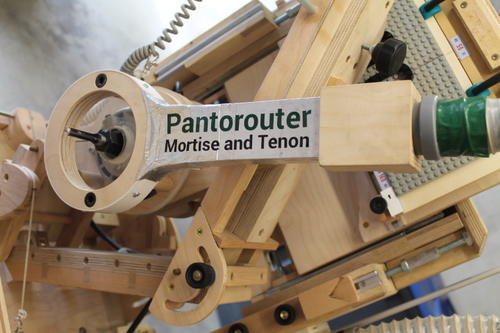 Stefan writes:
Stefan writes:
Hi Matthias
Here are some pictures from my dust collection setup. First of all the complete view.
The built consists of a mix of plastic, transparent acrylic, wood and aluminium. A rectangular aluminium tube is used to build the shaft where the dust hose is connected. The base ring of wood is mounted on a transparent acrylic disc. This is because the router has built in LED lights. The shaft and the base are connected by a strip of white plastic pipe which was cut and thermo-formed to get the needed curves. Last but not least some aluminium tape seals everything and brings it up to a stable construction.
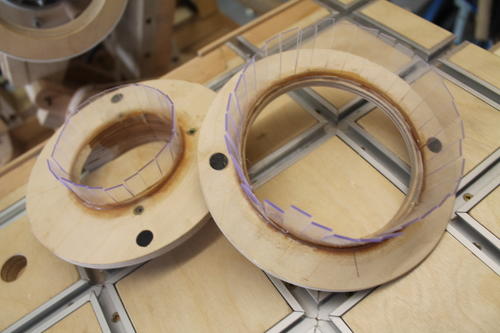
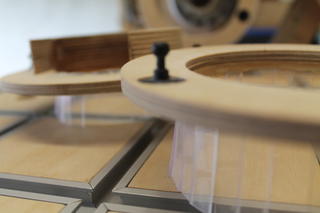 Next I built some dust hood rings. They are wooden rings with 1 mm thick
transparent flexible plastic sheet strips on them. They are cut to strips to
get more flexibility and are attached with silicone. I made
two sizes to to cover different router bit situations. To make it removable I
added two clips which were originally used for holding loudspeaker front
covers.
Next I built some dust hood rings. They are wooden rings with 1 mm thick
transparent flexible plastic sheet strips on them. They are cut to strips to
get more flexibility and are attached with silicone. I made
two sizes to to cover different router bit situations. To make it removable I
added two clips which were originally used for holding loudspeaker front
covers.
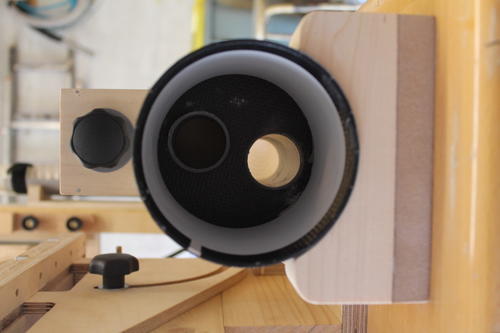
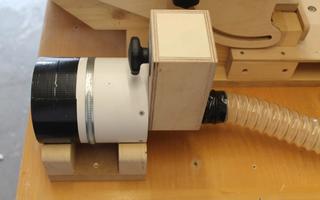 There is also an adaptor for my big dust collector but I
found the best results came up with a normal shop vacuum cleaner -
such one you put oil to the bearings.
So I don't often use this.
There is also an adaptor for my big dust collector but I
found the best results came up with a normal shop vacuum cleaner -
such one you put oil to the bearings.
So I don't often use this.
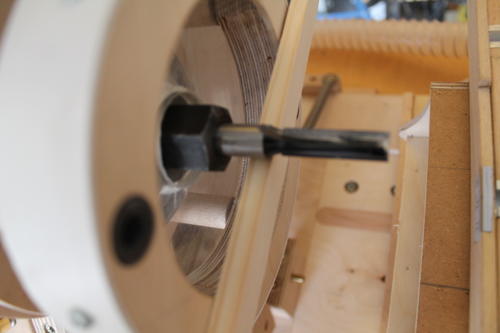 Another question is how big is the loss of depth? The answer is there is
some. My router, the BOSCH GOF 1600 CE has a 12 mm collet, so I didn't
really have an issue here because the total available cut profile is normally
50 to 60 mm. Here you can see.
Another question is how big is the loss of depth? The answer is there is
some. My router, the BOSCH GOF 1600 CE has a 12 mm collet, so I didn't
really have an issue here because the total available cut profile is normally
50 to 60 mm. Here you can see.
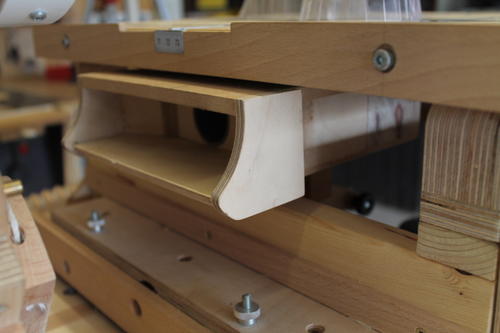
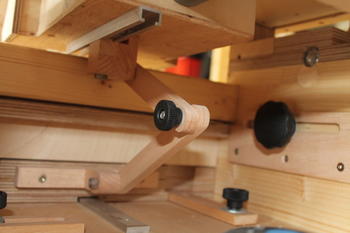 I've also experimented with a second additional dust collection under the
table to cover the chips which fall down. It moves back and forth to
always have the right distance to the dust collection around the
router bit, but I have to say this hardly helps any and I didn't use
it since the last experiment. The only reason why I didn't remove it is
that it looks very nice.
I've also experimented with a second additional dust collection under the
table to cover the chips which fall down. It moves back and forth to
always have the right distance to the dust collection around the
router bit, but I have to say this hardly helps any and I didn't use
it since the last experiment. The only reason why I didn't remove it is
that it looks very nice.
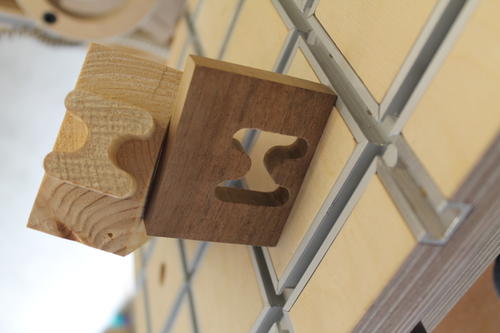 And finally some joints cut using my Lego templates
And finally some joints cut using my Lego templates
See also:
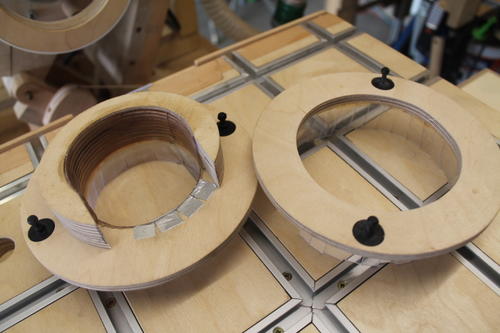
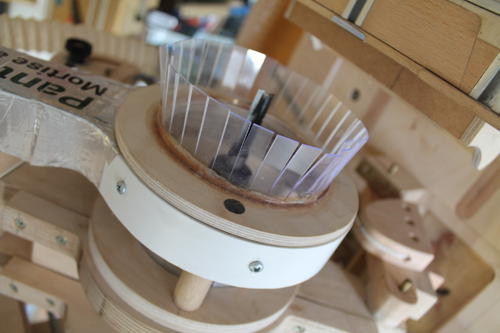
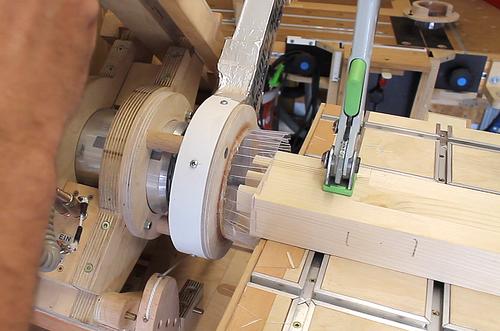
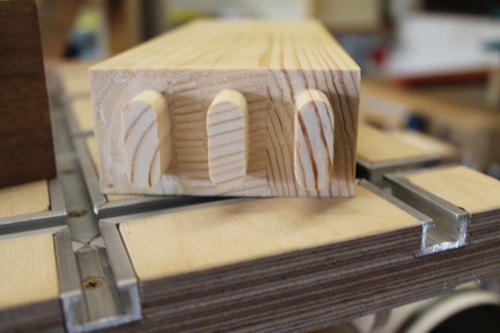
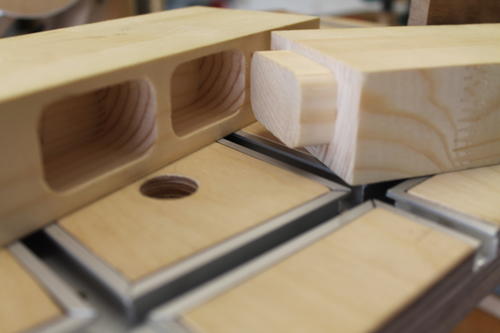
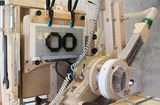 Stefan's pantorouter
Stefan's pantorouter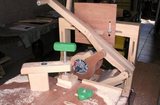 More reader built pantorouters
More reader built pantorouters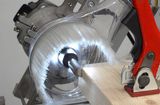 Pantorouter dust collection hood
Pantorouter dust collection hood More aobut the pantorouter
More aobut the pantorouter